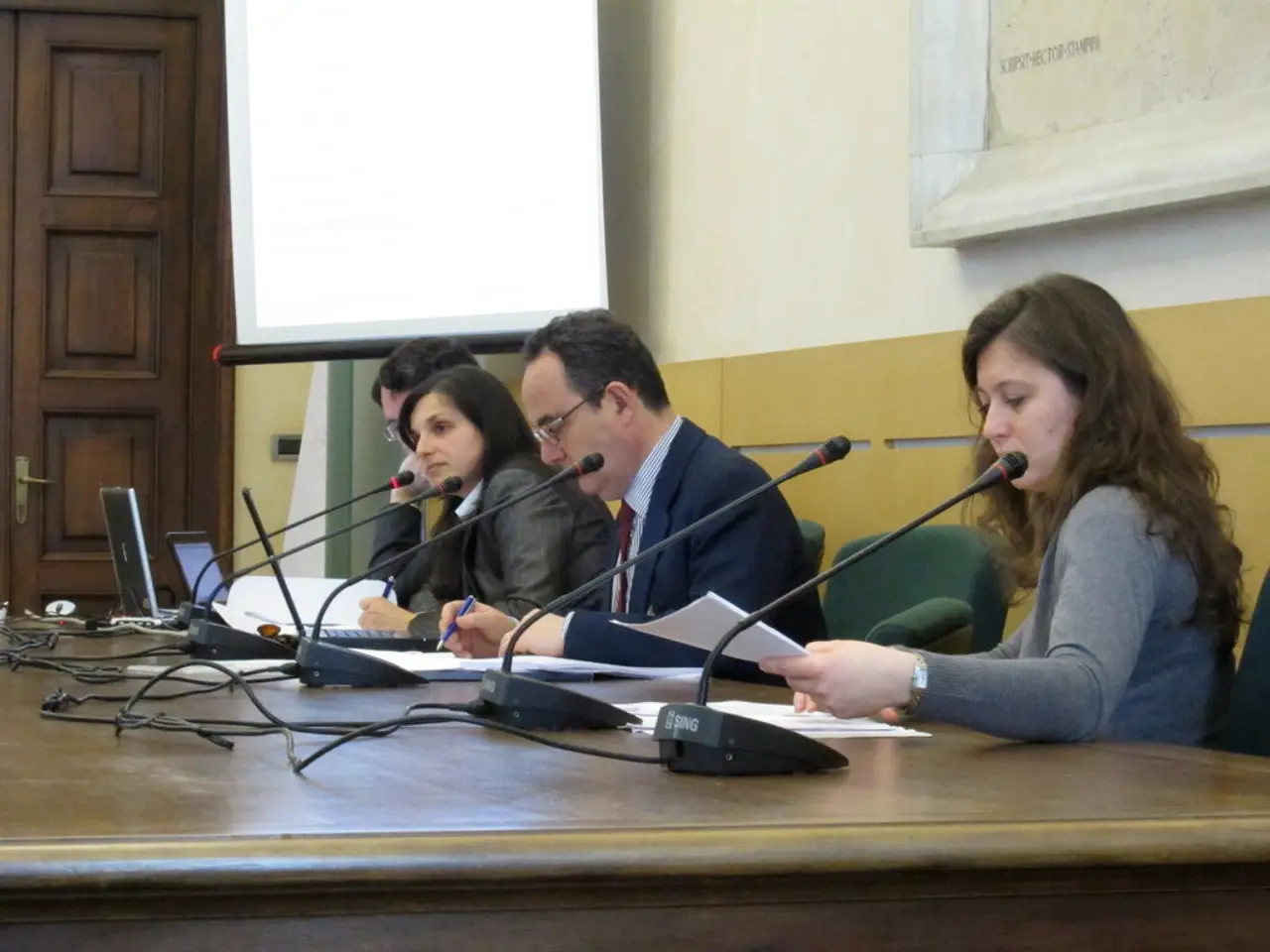Thailand promises response following report on scam activities in Cambodia allegedly linked to Thai individuals
Headline: Thai Government Cracks Down on Cross-Border Scams Threatening National Security
The Thai government has expressed concern following a new Amnesty International report detailing systematic human rights violations in scam operations across Cambodia, including forced labor, human trafficking, and torture. Government spokesperson Jirayu Huangsab stated that Prime Minister Paetongtarn Shinawatra takes the findings "very seriously," and has instructed all relevant agencies to escalate their efforts against cross-border organized crime, particularly those targeting Thais and foreign nationals.
Amnesty's report, released on June 26, reveals the existence of at least 53 scam centers operating across Cambodia, many of them repurposed hotels and casinos. The victims, lured by fake job ads on social media, come from various countries like Thailand, China, Malaysia, Vietnam, Indonesia, Bangladesh, Taiwan, Ethiopia, and others. Upon arrival, these individuals are often stripped of their passports, detained, and forced to carry out online scams, all under the threat of violence.
According to the report, these centers have connections to transnational criminal networks with ties to Cambodian officials. The report goes as far as accusing Cambodian authorities of turning a blind eye, or in some cases, facilitating the abuse.
Thailand considers these scam operations and human trafficking networks in neighboring countries a serious threat to both national security and economic stability. Jirayu emphasized that the government has been prioritizing the suppression of cross-border crime since late last year.
He mentioned government operations along both western and eastern borders. In the west, near Myanmar, Thai authorities have cut power, water, and internet access to suspected centers and tightened border controls. Thousands of people working in scam compounds have been repatriated, with some foreign governments sending planes to retrieve their citizens through Mae Sot Airport, Jirayu said.
The Thai government is working with international partners and agencies to disrupt human trafficking and the cross-border cybercrime networks that exploit legal loopholes and human vulnerability. Earlier this week, Paetongtarn announced new measures to address scam operations in Cambodia, amid ongoing tensions over a contentious border dispute between the two ASEAN countries.
Related:- Sondhi plays Sarit clip, blasts Thaksin and Hun Sen in fiery speech- ONWR issues weather alert for flash floods and landslides in North, Northeast, and South- 'Ruam Palang Phaendin' calls for Paetongtarn's ousting in statement
Tags:- Cambodia- call center scam- scammers- amnesty
Enrichment: The latest international action planned by the Thai government in response to human rights violations and scam operations across the border, particularly in Cambodia, involves a series of strict measures focused on border control, international cooperation, export controls, and tightening border security to combat human rights abuses and scam operations linked to Cambodia.
- The international community is closely monitoring the Thai government's crackdown on cross-border scams, especially those originating from Cambodia, as these operations threaten not only national security but also the economy and general news, with reports of forced labor, human trafficking, and torture.
- In light of Amnesty International's revelations, several international agencies are set to ramp up their efforts against cross-border organized crime, focusing on the tourism sector, which has been targeted by scammers in the forms of fake job ads luring victims from multiple countries.
- The Thai government's fight against cross-border crime extends beyond its borders, with stricter border controls, power, water, and internet access cuts, and repatriation of thousands of victims, involving international partners and agencies striving to disrupt human trafficking networks and cross-border cybercrime currently exploiting legal loopholes and human vulnerability.
- Amidst the ongoing tension between Thailand and Cambodia over a border dispute, the Thai government is implementing new measures to address scam operations in Cambodia, which are not only a threat to national security but also to the realm of politics and international business, given Cambodia's connections to transnational criminal networks with ties to Cambodian officials.
- Sport and crime-and-justice are intertwined in the Thai government's crackdown efforts, as the discovery of scam centers repurposed as hotels and casinos unveils the complex relationship between international tourism, trade, and the underground world of crime, threatening the very fabric of the region's stability and progress.








